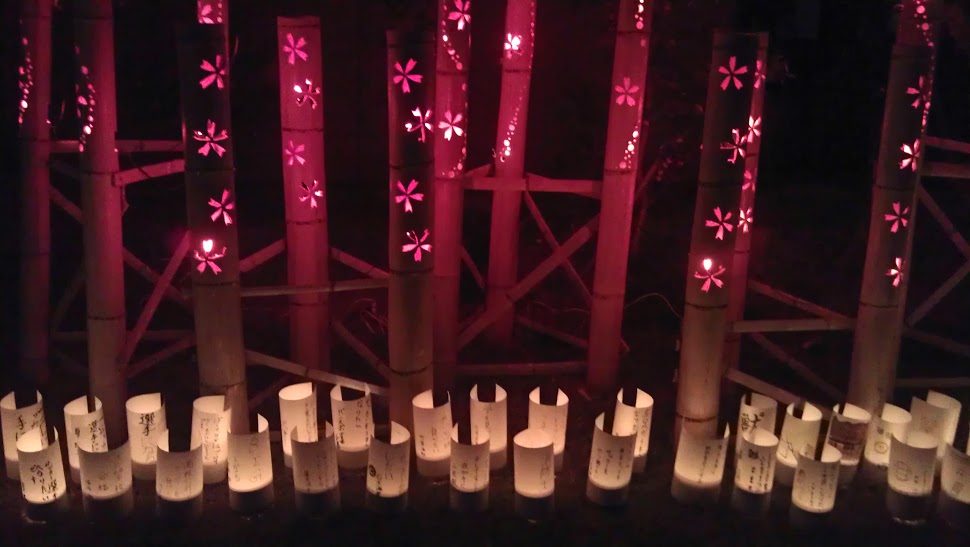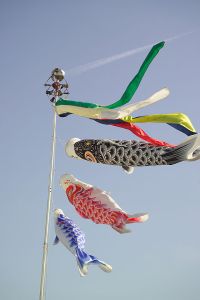“No man is an island entire of itself; every man is a piece of the continent, a part of the main; if a clod be washed away by the sea, Europe is the less, as well as if a promontory were, as well as any manner of thy friends or of thine own were; any man’s death diminishes me, because I am involved in mankind. And therefore never send to know for whom the bell tolls; it tolls for thee.” (John Donne)
// queue pandemic-like soundtrack: https://www.youtube.com/watch?v=rVN1B-tUpgs
A while ago I read a book in which a pandemic had struck the world, engulfing it in darkness. The survivors made do with a new art of living – of loneliness, trauma, new savage geography in shocked readjustment or the imagined mythical past of electricity and instant connections in a mankind so large the post-pandemic born brain could not comprehend the sheer numbers. A beacon of light and quirkiness is the traveling theatre troupe, whose people carry both musical instruments and weapons, scavenge for costumes from abandoned homes, and become one in name and function with their instruments. Both loving each other with scant desperation and hating the suffocation of the other’s infinite-seeming presence, all discomfort is made away in resurrecting Shakespeare plays for whatever settlements are still peaceful and familiar enough to hear and welcome them.
Yes, yes, the theme is old: art in the midst of tragedy, literature as a balm for the soul. The interconnectedness and the sublime of it all.
Tonight fate struck in a round email: come to the pandemic poetry night and hear fragments of journals, poems, impressions, from 17th century until today. Our very own station eleven in the new Asian-style courtyard of the transcultural studies library; half-empty seats sprinkled between round stone pieces on a floor that looks like a go board.
Transcultural, transnational, transcendent, this evening. I am confined within a small group of lovely strangers, almost friends. The four friends I excited insufficiently for this occasion ultimately all back out (why hear about the pandemic yet again? on purpose?) and I slither inside like a clandestine late-comer to a party of which I’m barely putting the pieces together.
Lucky me, literature needs no context. No context at all.
While I crink my neck looking around for a possibly late friend, the first German participant reads from her pandemic diary. I feel old yet young, reminded of high-school literary circles. The young woman starts on a personal note but quickly delves into climate change and the realization of our impact on earth and our interconectedness as species, so that it reads like a Spiegel editorial, passionate as it may be. The moral conscience of a privileged German youth overrides the need for personal confession and turns it toward the social message. “Be grateful for your privilege, repair what you have broken.” The second journal, of a Chinese woman, relates with humor her return home, to the strict Hong Kong, the nervousness of demanding check-ins, test centers and quarantine hotel rooms; the well-known tribulation of expat parents, jumping from worry to excitement, to worry again. Inappropriate, endearing comments showing their lack of knowledge of the environment you move in daily. I smirk at her criticism of Europe with its technically-malfunctioning airports as a continent of ineffectual colonizers. Yes, please.
The poems become more and more moving, from the God-centered 17th century one, a Chinese poem by a Wuhan author caught in the devastatingly dark isolation, to a danish poem which jumps from emotion to emotion in a postmodern, disjointed, disfiguring way, and evokes pain in me with a beautiful sway: “Someone ate a small, fluffy bat in China and it changed the world” and “I walk the paths of infection to a home full of darkness“.
Students signal each other and joke with familiarity, supportive teachers hold the event together and even share their own experiences. For one of them, Corona has a long history, since 2000 until now, when in his Beijing-centered youth it meant isolation and fear, in recent times it meant his family could stay together instead of working and living 600 km apart. Their son was better acquainted with his parents’ Chinese culture because of the abundance of family time spent together. As he shows us the son’s cartoons of a Chinese literary classic, he praises the positive side effect of the pandemic, reconnecting with each other and reevaluating one’s life.
I am surrounded by strangers and their thoughts and feelings. Distant, yet personal. Comfortably lonely, though not truly alone.
I realized though, I never put into words what I felt these last years. Or rather, I spoke too much and then too little, like a mumbling old lady with foggy vision and trembling knees, I just wished for it to end and for the longed-for comfort of ordinary days and fears.
Here is my pandemic memory:
Day 1, 2, 3, … 15, I am afraid it’s all ending like this, sudden like a bad movie plot, plot-twisting predictably shocking. I also laugh at youtube videos ridiculing the pandemic angst and my boss scoffs at the idea of staying at home if one has cold symptoms. This covid fright will be over before it began and it’s not worth mentioning.
Day 15 to 30, well into March, home office crackdown everywhere, lock-downs and panic, noodles and toilet paper become precious commodity goods. I pay 7 euros for toilet paper and think, if this isn’t the pandemic then what is? I walk through the gardens of Heidelberg castle and need to cry at its emptiness and lack of people. It’s like all distopian novels I ever read and there have been quite of few. I want to scream and shout and be paralyzed and inefficient – why should any life go on in such chaos. All I ever wanted was normal, the semblance of normal, normalness wrapping me like an old comfortable blanket. Old, boring me, I must have liked my normal predictableness after all.
Day 31 to indefinite later… I don’t deliver a translation project, all conferences and classes canceled, barely have any work to do. Every stepping out of the house seems like a moral or immoral decision. PhD research is a dream from far away times as my neurons crave brain candy books with predictable plots. Oh, the normalcy of mediocrity. Don’t give me good art, don’t give me catharsis, don’t pull me out of my cocoon. I will surround myself with all basic things, familiar and dear, an isle of me, me, me, my thoughts protected and suppressed.
The backside of the coin – discovering the databases of corona cases in the world, sorted by John Hopkins, RKI and a prestigious Romanian university. Reading more sciency- articles than ever before. Speculating and worrying. Each new ten thousand cases a tragedy. Somewhere people are dying, families are grieving, cases go unreported, governments are lying, the sickness has no end, we will all carry it around the world like never before, go surfing, go skying, go go go, just go, global citizen, you don’t want your own company, cannot be alone in a room with your thoughts. You want the new and unexplored, the trendy, the instagram influencers, the palm trees and the coconuts, selfies atop abysses. The world can’t just stop unless it’s made to. You just can’t stop. Your privileges are your god-given human rights and you just have to take that vacation, meet those friends, cheat on that covid testing, try to bribe that airport employee. We are all indeed interconnected in stupidity.
I am angry and I yell. I yell at people laughing about irresponsible corona deaths. I yell at the Germanness of selber schuld. I yell at family, at parents who don’t stay put and go out of the house three times a day to buy bagels. “It’s only a half-hour walk,” they say, but half an hour is more than enough, you could get sick and die and I won’t be there to hold you. Your time is precious, is precious to me, you are precious to me, why did I ever want to go away and live a life with love expressed cibernetically. Was it worth it, if it all ends like this? If a plague can strike, so much more can a heart attack, a car, a random virus or disease. Why I am here and not there, why why why?
The agony of the successful Romanian expatriate. The price you pay for the comfort you get, always a sacrifice either way, the world has grown too big and tempting, and I won’t, I won’t, I won’t just stay by the hearth, love my family and disappoint them with my clipped wings in a Romanian society. I will soar high and alone.
Nothing is worth anything. Corona has taught me that or frightened me into believing it.
Then there is a certain loneliness of the shared Corona experience. Yes, we sneakily celebrate birthdays, or take a walk on empty streets with a visinata sour cherry vodka and share high-school memories. Yes, corona memes may bring a smile and corona articles are shared with the quickness of previous tabloid news or gossip. Yes, this pandemic hit in the age of instant connections and I am thankful for companionship. But each friend, each relative has been struck differently and at some point withdrew within. Together aloof. Aloof together. No one can honestly put into words their feelings of corona, yes nobody can understand anybody anyway, but corona, this massive, subtle beast, just short of being truly fatal and frightening, it makes an x-ray of our lives, of our families, of our treatment of the planet, of our comfortableness with ourselves and with each other. It demolishes relationships and builds them back up, unveils the true conspiracy quacks of the extended family, deconspires the reckless friends who party too much, the petty work-givers and work-takers, the hypocrisy of government and big corporations, big pharma, big, big, big, everyone supporting the economy but not really the little guy, the little woman. We’re all judging and judged and doing our best, but actually also failing pretty miserably.
So, so alone. Like never before and never again.
Truly? Is this without precedent?
The dolphins are swimming in Venice waters again and I think, well, actually, nothing will ever be truly better, nothing will ever truly change, no lessons truly learned in Corona. We’ll go back to 8 hour useless desk jobs and transits, no home office for you, you untrustworthy employee, why should you sit at home and rob me of the right to assert my authority over you. We will not spare the planet, we will stream movies as much as we can, fly as much as we can, drive as much as we can, I am the globe-trotter, the thirsty millennial, the trendy successful youth, the world is my oyster and new experiences the ultimate high. My time is more precious than the planet, I’d rather 1 hour flight than 4 hour train ride, my appetite is not to be curbed by anything. Let the animals die, the skies darken and the planet suffer. Corona will pass but I will remain, vice-king of vices, it all, it all pertains to me and me alone.
Nothing will truly be learned, nothing will change, the tragedy is maybe not even as big as other human tragedies. But that just means the world remains as it was – a comforting thought. We limp along, skimp over our issues, accidentally do something good now and again. We holpern and stolpern, and stolpern and holpern. Corona will not defeat us, we have bigger disasters planned.
I am overcome with the guilt of being. Anxiety multiplies, it doubles and triples in itself, goes ambitiously exponential, just like the virus steadily ravaging the world. Not too loud, but always there. Not shocking and obvious, bland enough to be minimized, walked over.
Why do they call it Weltschmerz? What I feel is exactly that no man is an island, any man’s death diminishes me. Corona deaths that were avoidable, did not need to happen; I feel them all and none. I think of the sea of grief left behind, every man and woman or non-binary non-identifying person has someone who loves them and will miss them. What pain for them to feel, amidst such random catastrophe. And if someone dies and is not missed, is that not also the biggest of tragedies? The failed connection, the missed opportunity. Those deaths are not statistics, even when they climb in the millions. They are preventable and did not have to happen like this. I am sad for all and what useless emotion on my side. I would be the first eaten by zombies, too busy contemplating the tragedy to go grab a gun and fight like hell.
What a terrifying thought of one’s own uselessness. Yes, Weltschmerz. But the world has no pain. The world is massive and indifferent. We just limp along attributing meaning.
I stay silent and bury my head in regency romances. Such pain, such panic is toxic. I do not contribute with my empathy. Like an echo chamber reflecting all pain, told and untold, I feel I am a plague of un-wellness.
Recent pandemic days: the tourist buses are back, the case numbers are sinking here and there, growing other where. Open-air concerts, open bagel shops, vaccines all around, people are smiling and laughing; it’s as if corona never was.
I forget my mask sometimes and wonder – how could this not have become even more ingrained? One year suffices to make and unmake habits. A great sigh lives within me and waits for the opportune moment: in months or years I will say, I will think – there was such a thing as corona. Something was bound to happen to me, the 90s kid, spared of communism, wars and diseases. Something was bound to massively interrupt my life and now it has and now it is over.
The astonishing speed with which we accept comfort and happiness. The well-being as status quo. Yes, I shall think, there was such a thing as corona, but now it is over. The crazy times are gone, now I can live as before.
I will welcome the memory-erasing normal. Yes, this is me. The normal.





















